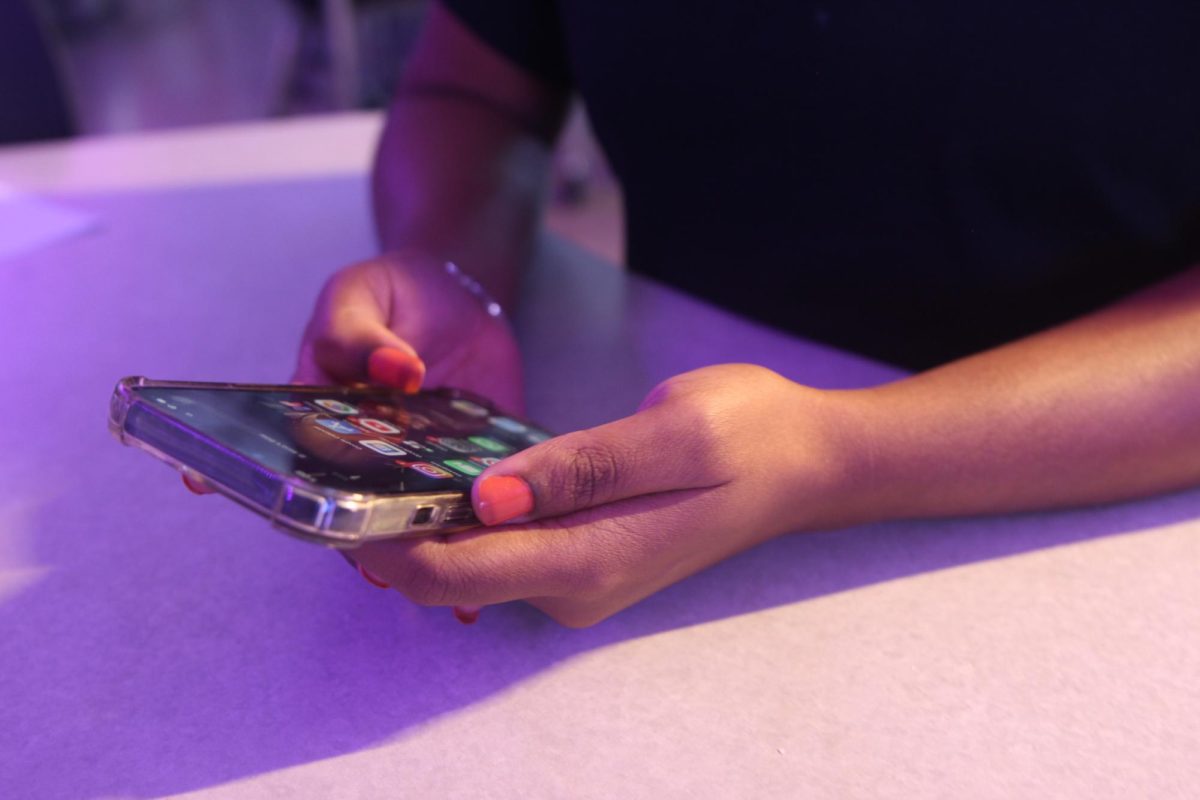Since the statewide cellphone ban in schools took effect, Texas students have been learning to navigate an unexpected challenge: the pull of procrastination that is amplified once they get home. Phones unlock, thumbs move, and suddenly, minutes slip away. Because phones are out of reach all day, many students say they spend even more time on them in the afternoons and evenings, cutting into study schedules and pushing back homework until late at night.
“By the time I’m walking home from the bus, it’s so hot and I’m already tired,” sophomore Spoorthi Shanigaram said. “That’s when I just crash and scroll on my phone for a bit. And when I say a ‘bit,’ it usually turns into like 30 minutes. Part of it’s just because we’re not really allowed to use our phones at school, and the internet on the bus is terrible. So when I finally get home, it feels like the perfect time to catch up and just chill.”
With apps like Tiktok and Instagram dominating a teen’s homework time, the urge to check in isn’t just about entertainment, it’s about connection and pressure to stay in the loop of friends’ lives.
“Honestly, the biggest distractions are Instagram and TikTok,” Shanigaram said. “It’s way too easy to open them and suddenly I’ve been scrolling forever. But at the same time, that’s how I keep up with my friends. Without it, I wouldn’t even know what they’re doing half the time. If I don’t check, it feels like I’m missing out on everything and I hate that feeling.”
For many, that urge to check who’s following them on Instagram or what new dance trends popped on their feed build throughout the day. By the time the students get back home, clicking on their social media icons feels almost unavoidable – almost like muscle memory.
“I check my phone because I am not allowed to have it at school,” sophomore Manvi Merothiya said. “So when I go home, my hands automatically check it. This is because I feel like I need to get on my phone because I have been deprived of it for so long.”
Sometimes, the issue goes beyond checking in – it’s a cycle of putting off work until the consequences catch up.
“I get so much homework, and I don’t really enjoy doing it,” Shanigaram said. “I’ll have my laptop open like I’m about to start, but my phone’s right there and I just start scrolling. Before I know it, three hours are gone. The only time I actually get myself to work is when I’m in trouble or realize something’s due soon.”
The late start often rearranges their nights due to their assignments extending well past midnight, leaving students drained for the next school day.
“Almost every single day, I am usually on my phone till 7 in the evening,” sophomore Ashritha Pushpalayari said. “I come back home at like 4 pm, so technically my screen time is around 3 hours at that time. I start my work at around 7 and my assignments take longer to complete. That causes me to stay up past midnight every day just to finish everything. This really affects my sleep schedule because I wake up at 6:30 or 7 am every day, and when I come to school, I get really tired. All that relates back to my procrastination on social media.”
Although many students admit that their doomscrolling habits impact them negatively, they tend to try to balance their screen time intentionally.
“Sometimes I can manage my time with my phone, but it depends on the day,” Merothiya said. “If I’m super tired, forget it—I don’t want to do anything, so it’s harder to focus. But if I’ve got energy, I’m actually pretty good about balancing everything.”
The ban, while aiming to prevent in class distractions, has left students with different perspectives of how the ban changed their habits.
“There are definitely pros and cons,” Shanigaram said. “Like, one good thing is that I don’t even touch my phone during class anymore, which is probably better. But then the bad part is that I just make up for all that lost time when I get home, so it kind of evens out.”
For those who are looking to break the cycle of procrastination, some believe it comes down to discipline and consistency.
“I feel like I can balance the work but all I need is the inner motivation to do so,” Pushpalayari said. “I get that inner motivation by imagining my future self. If I want a comfortable salary, I have to get ahead on my work from day one instead of doomscrolling. Putting my phone away and being in a room with no distractions feels like a good idea—but it’s hard.”
According to Dr. Timothy A Pychyl Ph.D from Psychology Today suggested that in order to avoid doom scrolling procrastination on school homework, one should take immediate action on the next small task rather than waiting to feel motivated.
“One rule I would probably create is that if a student is doomscrolling with a time limit of 7 hours, instead of blocking all the apps after the 7 hours of scrolling is complete, the student will get a reminder every hour of the time they have been doomscrolling for,” Shanigaram said. “This will help them notice how long they have been on their phone constantly, making it easier for their mindset to get their work done first.”


